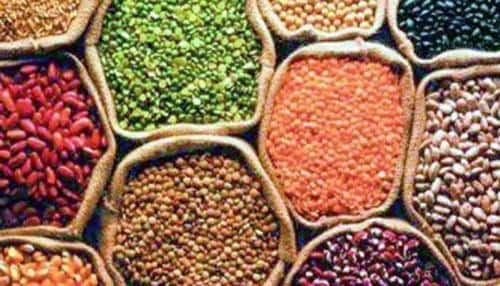- News>
- Economy
Price rise: Govt increases size of pulses buffer stock by 5 times to 8 lakh tonnes

The government on Wednesday increased the size of the buffer stock of pulses by five times to 8 lakh tonnes for this year as it seeks to sell lentils at a cheaper rate to give relief to consumers.
New Delhi: The government on Wednesday increased the size of the buffer stock of pulses by five times to 8 lakh tonnes for this year as it seeks to sell lentils at a cheaper rate to give relief to consumers.
A decision in this regard was taken at a high-level meeting chaired by Finance Minister Arun Jaitley here.
Pulses prices in retail markets are ruling over Rs 170 per kg now despite several measures to boost supply in the last couple of months.
Union Food Minister Ram Vilas Paswan, Agriculture Minister Radha Mohan Singh, Urban Development Minister M Venkaiah Naidu, Transport Minister Nitin Gadkari and Commerce Minister Nirmala Sitaraman, and secretaries of the ministries were among those present in the meeting that reviewed the prices of pulses and other essential commodities.
"In a significant decision, the government has decided to enhance the buffer stock of pulses from 1.5 lakh tonnes to 8 lakh tonnes in a high-level meeting on prices held here today," an official statement by the Food Ministry said.
The decision is in line with the recommendation of an inter-panel set up by the ministry.
The buffer stock is being created by procuring pulses directly from farmers at market prices using the Price Stabilisation Fund. The stock is being released to states for retail distribution at highly subsidised rate of Rs 120 per kg.
So far, the government has procured 1.15 lakh tonnes of pulses through state-run agencies like FCI and SFAC. Of which, over 10,000 tonnes has been released to states like Andhra Pradesh, Telangana and Tamil Nadu for retail distribution.
The buffer stock is being created through domestic procurement as well as through imports in order to address the deficit of 7.6 million tonnes of pulses.
Production of pulses is estimated to have declined to 17.06 million tonnes in 2015-16 crop year (July-June) due to two consecutive years of drought, while the demand for it stands at 23.5 million tonnes.
